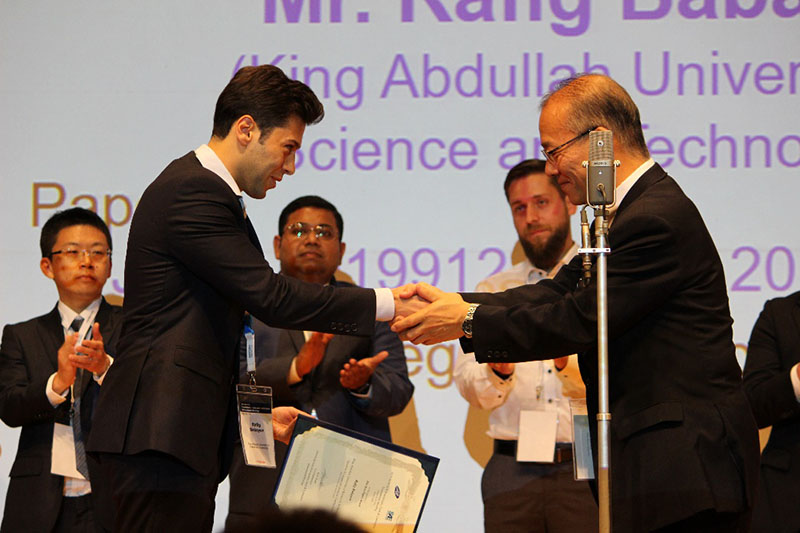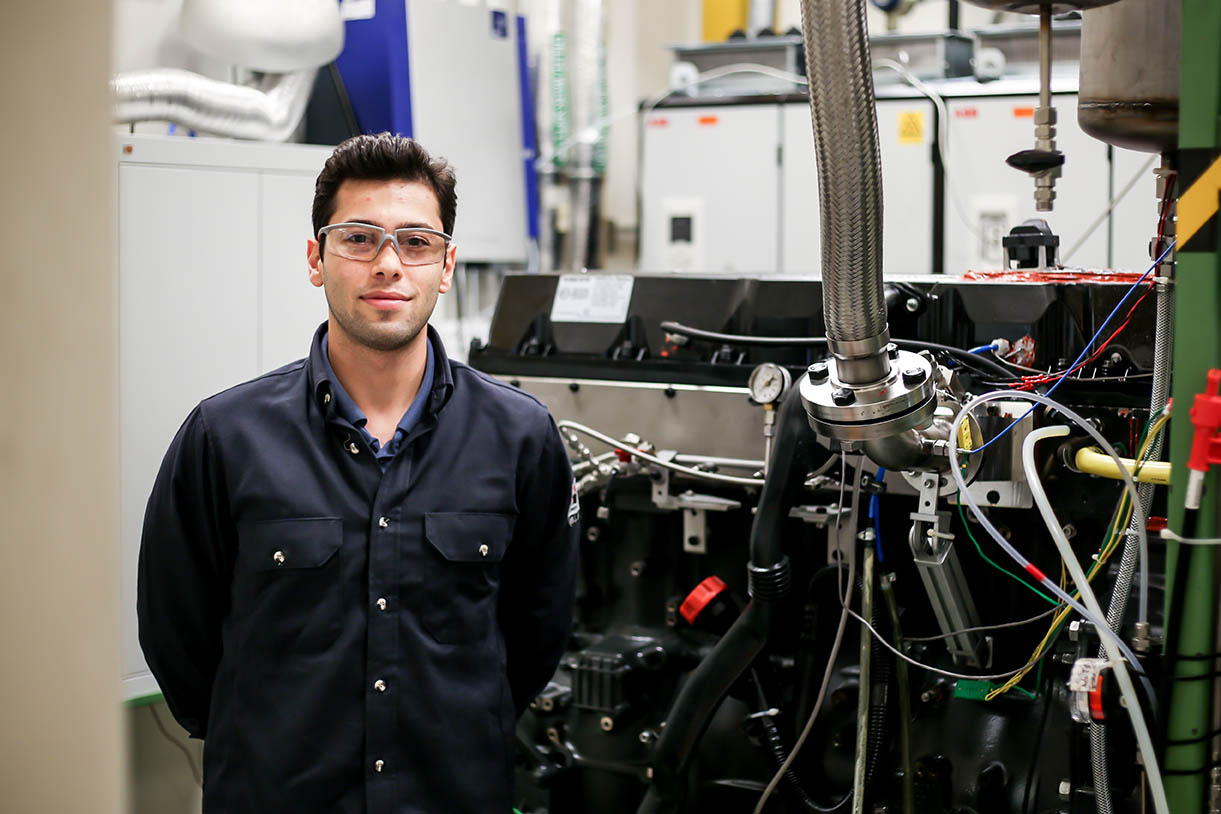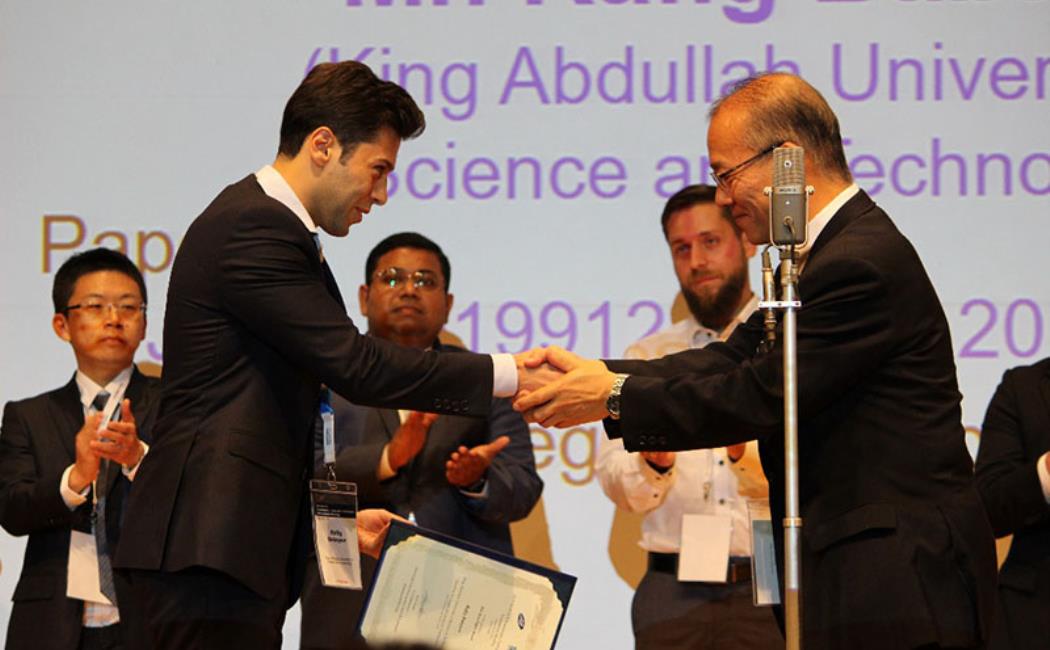by Raheena Abdurehim

Rafig Babayev at JSAE/SAE Powertrains, Fuels & Lubricants International Meeting
Rafig Babayev received The Best Paper Award at the 2019 JSAE/SAE Powertrains, Fuels & Lubricants International Meeting organized by the Society of Automotive Engineers of Japan in Kyoto. It was awarded for his study on a novel combustion mode, the Isobaric Combustion, which enables internal combustion engines to simultaneously achieve higher efficiency and lower emissions.
Rafig Babayev is currently a Ph.D. candidate in Prof. Bengt Johansson's group at the Clean Combustion Research Center (CCRC), KAUST. He joined KAUST in 2016 to pursue his master’s degree in mechanical engineering, and now he is a Ph.D. student, working toward improving internal combustion engine efficiency and emissions by employing advanced combustion concepts and developing a novel split-cycle engine.
The Double Compression Expansion Engine (DCEE)

Prof. Johansson's group in collaboration with Volvo Trucks are developing a new split-cycle engine concept, The Double Compression Expansion Engine (DCEE). Babayev's work enables this engine to operate under the ideal Brayton cycle with heat addition at constant pressure and full expansion down to ambient conditions after combustion. As a result, the efficiency of this split-cycle engine is expected to be close to 60%, which is much higher than the 45% that normal truck engines would have today.
The award-winning work, through employing a novel injector characterization technique and detailed analysis of the experimental data, showed that isobaric combustion can improve the thermal efficiency of an engine by reducing the heat transfer losses by 20%, and simultaneously reducing the NOx emissions by a factor of two. It was also demonstrated how to simplify the complex injection strategy required to achieve isobaric combustion without a penalty on efficiency and emissions.
"I am planning to focus my research efforts on understanding and further improving the Double Compression-Expansion Engine by optimizing each of its main constituent components, as well as finding ways of optimal implementation of the isobaric combustion concept in the DCEE. This will involve both experimental studies and numerical simulations. Undoubtedly, the best way to facilitate the advancement of this project is to gain invaluable experience from the industry. Thus, starting this winter (January 2020) I am planning to do an internship at Volvo Group, our main collaborator and the driving force behind the project." said Babayev.




